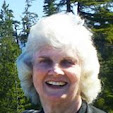 Inuksuk in Victoria Harbour |Watercolour and crayon |©2013 Charlene Brown
Inuksuk in Victoria Harbour |Watercolour and crayon |©2013 Charlene Brown
Explaining strange new ways of visualizing
Such as a curved universe
Or supersymmetry
Or fractals
In my first blog post about organizing a book, I mentioned I
was following the advice of ChrisGuillebeau, who said the perfect
introduction to a book often comes late in the writing process... I decided I
should start lining up aspects of the book that I have already written about, and have been doing that for several blog posts now.
But… Chris also points out that when you work from the
middle indefinitely, a manuscript will become disjointed, and it requires some
effort to stitch it all together. Before too long, you should draw up an
outline. After that you will be ready to write an Introduction.
So here’s my first stab at Step 2 – an outline.
The Fine Art of Physics
Introduction: Art
and Science – the subjective and the objective
1. History of breakthroughs in the arts and
sciences – parallels and crossovers
2.
Is imagination
more important than knowledge? – Einstein thought so!
3.
Are artists
better able to visualize problems and solutions?
4.
Are artists
more innovative, and capable of lateral thinking?
5.
The next
Leonardo Da Vinci – with both subjective and objective genius
The illustration above, which I believe will fit into
Chapter 3, shows excerpts from a computer-painted video, ‘The Theory of
Everything’ that I made in 2008.
The
Theory of Everything, or Unified Field Theory, when it is finally formulated, will
combine quantum mechanics and relativity, and could explain everything about
physics.This would make just about anything possible – anti-gravity,
time travel, inexhaustible convertible energy, teleportation… Strange new ways
of looking at our universe are required.






